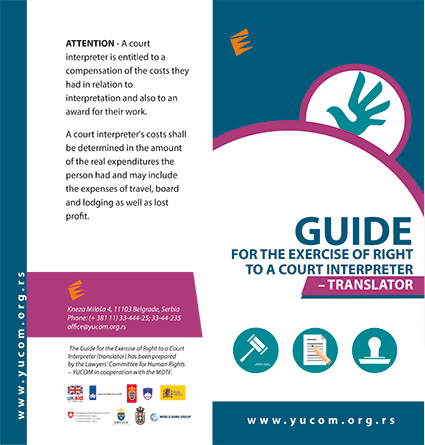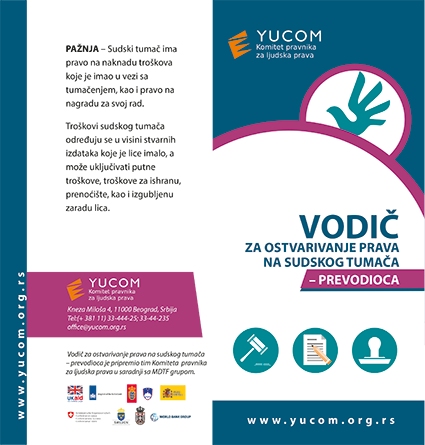
Updated: May 30, 2018
Improving the access to justice for vulnerable groups - exercising right to a court appointed interpreter
The MDTF JSS in 2014 Judicial Functional Review identified challenges in access to court appointed interpreter and information on those who provide interpretation services. To overcome this shortcoming the MDTF recommended organization of a public campaign to raise awareness on the role of, and right to, a court appointed interpreter.
As a tool to raise awareness the MDTF JSS team in partnership with YUCOM prepared the Guide for the Exercise of Right to a Court Interpreter (translator). The Guide provides basic information on interpreters, the manner of their engagement, as well as on parties' costs if they exercise this right. Thus, parties and other participants in civil procedures can be instructed about the use of this right.
The main goal of the Guide is to enable access to justice for persons who are not in command of the Serbian language or a national minority language in courts where that language is in official use, as well as for deaf, mute and blind persons, by giving instructions on how to use the right to a court interpreter in civil procedures. The Guide for the Exercise of Right to a Court Interpreter is intended for parties (plaintiff and respondent) and other participants in civil procedures to ensure equal and active participation in a court proceeding.

